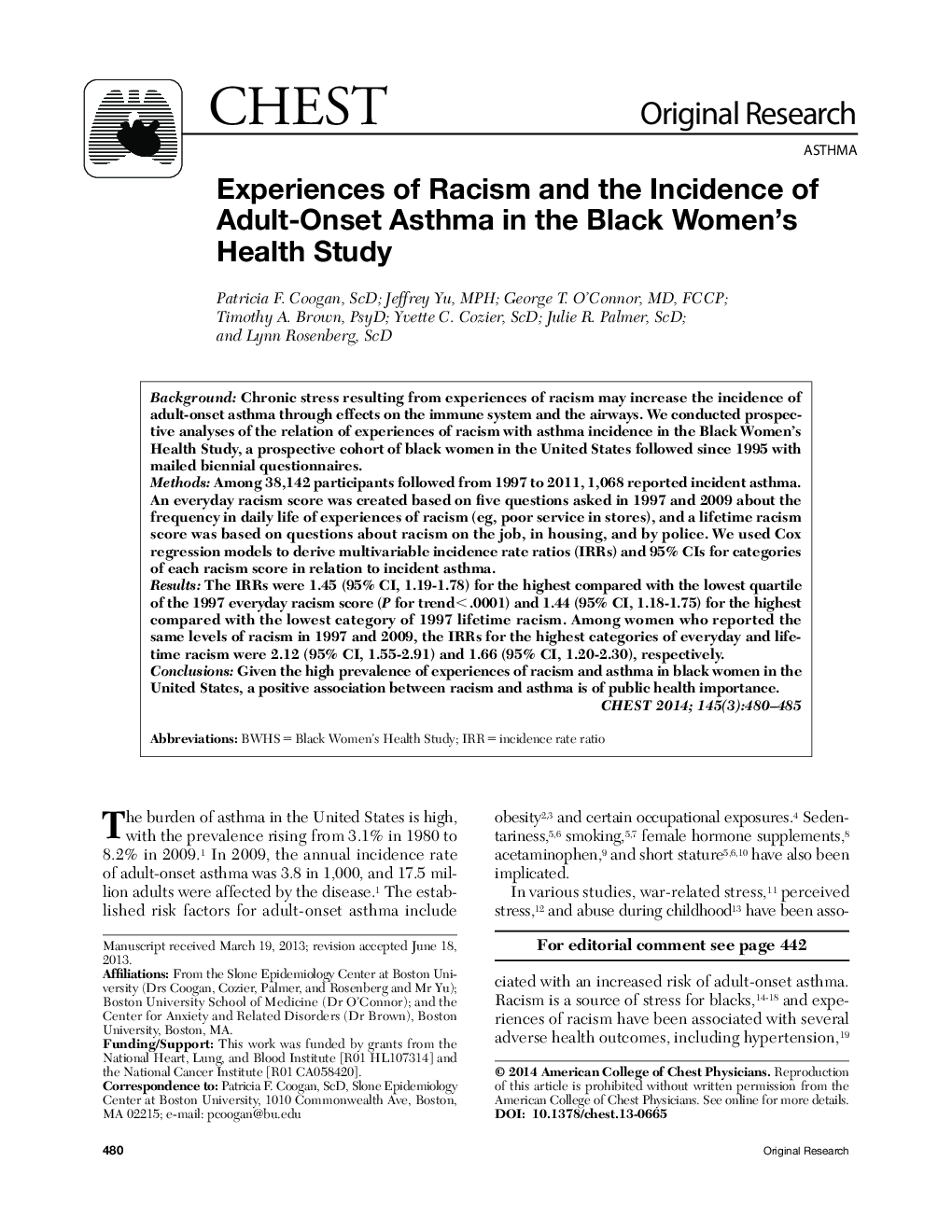| Article ID | Journal | Published Year | Pages | File Type |
|---|---|---|---|---|
| 2900015 | Chest | 2014 | 6 Pages |
BackgroundChronic stress resulting from experiences of racism may increase the incidence of adult-onset asthma through effects on the immune system and the airways. We conducted prospective analyses of the relation of experiences of racism with asthma incidence in the Black Women's Health Study, a prospective cohort of black women in the United States followed since 1995 with mailed biennial questionnaires.MethodsAmong 38,142 participants followed from 1997 to 2011, 1,068 reported incident asthma. An everyday racism score was created based on five questions asked in 1997 and 2009 about the frequency in daily life of experiences of racism (eg, poor service in stores), and a lifetime racism score was based on questions about racism on the job, in housing, and by police. We used Cox regression models to derive multivariable incidence rate ratios (IRRs) and 95% CIs for categories of each racism score in relation to incident asthma.ResultsThe IRRs were 1.45 (95% CI, 1.19-1.78) for the highest compared with the lowest quartile of the 1997 everyday racism score (P for trend <.0001) and 1.44 (95% CI, 1.18-1.75) for the highest compared with the lowest category of 1997 lifetime racism. Among women who reported the same levels of racism in 1997 and 2009, the IRRs for the highest categories of everyday and lifetime racism were 2.12 (95% CI, 1.55-2.91) and 1.66 (95% CI, 1.20-2.30), respectively.ConclusionsGiven the high prevalence of experiences of racism and asthma in black women in the United States, a positive association between racism and asthma is of public health importance.
